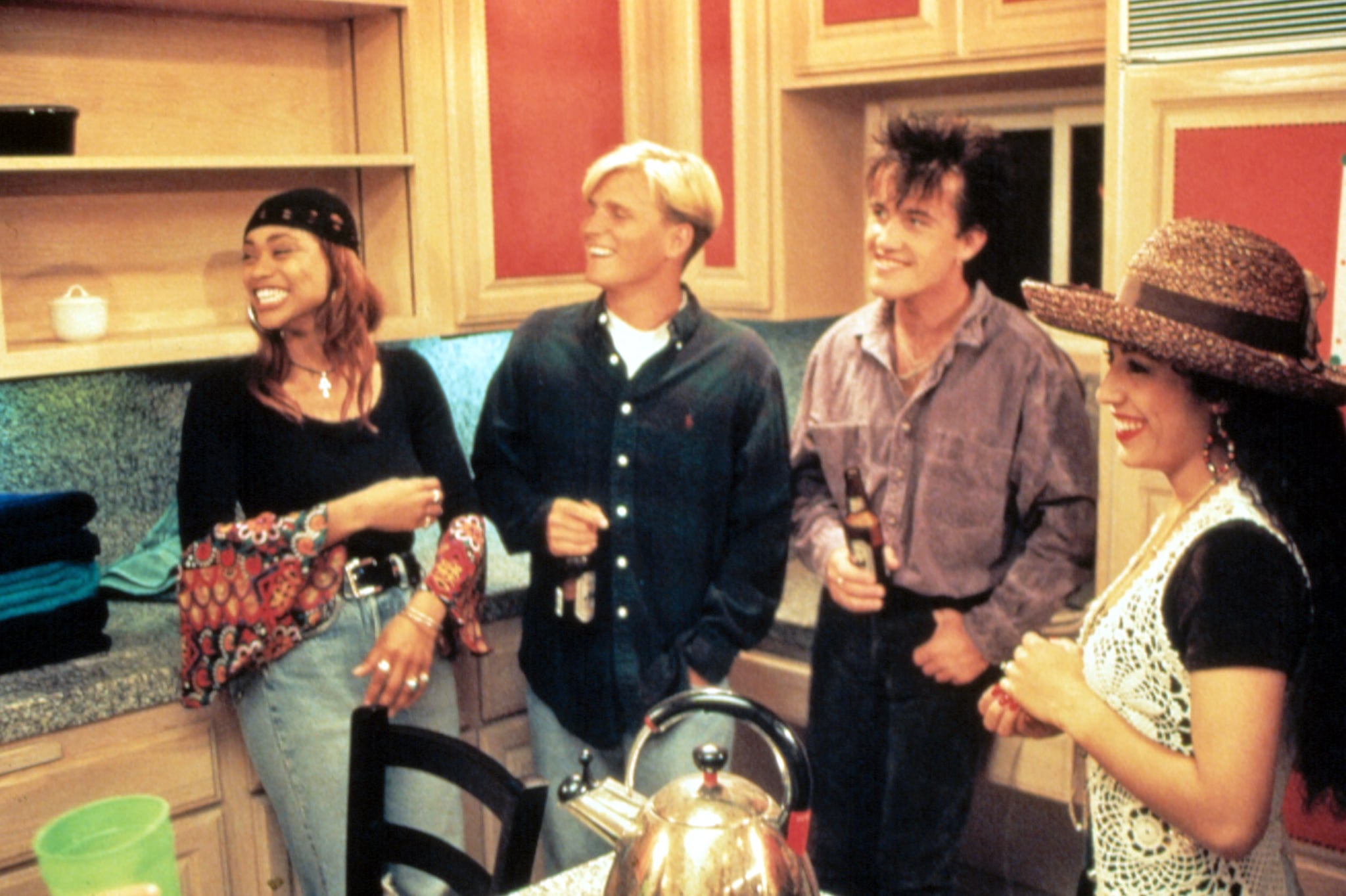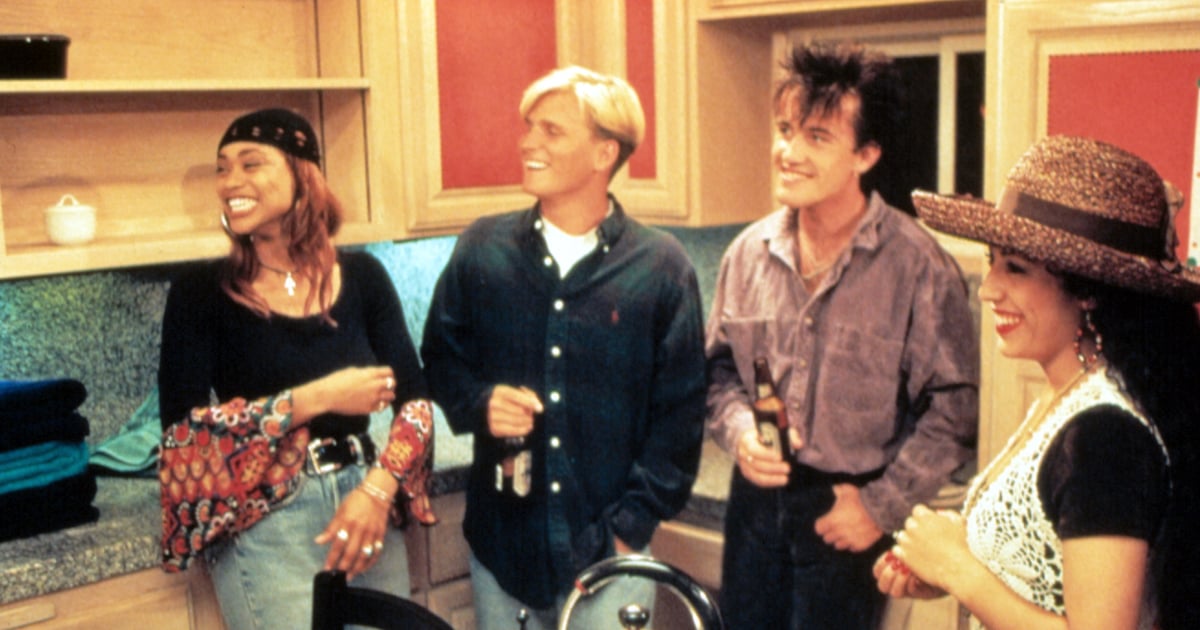
I’m sure I’m not the only person who winced and cringed during a particularly shocking scene from The Real World Homecoming: Los Angeles‘s sixth episode. The scene in question occurs when some of the original season two cast members — which include Tami Roman, Jon Brennan, Beth Stolarczyk, Beth Anthony, David Edwards, Glen Naessens, and Irene Berrera-Kearns — attempt to play a friendly game of “fishbowl,” and it gets off to an awfully intense start.
During the end of the episode, things take a sharp turn when a query about the Black Lives Matter movement and George Floyd comes up — particularly asking about Brennan’s views on these topics as a white conservative. Brennan, a missionary who lives in Alabama, acknowledges that there are white people in America who are racist, but he seemingly contradicts his statement when he refers to the kids he ministers to as “young, Black, colored people,” which Roman calls him out on.
“I can’t go through my life trying to educate people on humanity.”
In response to Brennan’s comments, Naessens — another white man in the room — asks if there’s “something wrong with not seeing color,” which Roman also quickly (and rightfully) takes issue with. “Yes, because the reality of life is that we are all different,” she says. “There is color.” In her confessional, Roman — who’s visibly frustrated — says, “I can’t go through my life trying to educate people on humanity,” and also adds, “Why do we have to educate you on some sh*t you should already know? If you’re talking to a Black person about a plight that affects them, you might want to listen.” The TV star later echoed her sentiment on Twitter after the episode aired, writing, “I’m just thinking . . . I shouldn’t have to educate people on how to be a decent human being and to hold their family, friends, and associates accountable to do the same.”
Later during the cast’s discussion, Roman slams Naessens’s comments, saying that by not acknowledging other people’s race, he “[minimizes] my struggle.” “You need to see some f*cking color so you can understand what I’m going through in America,” she points out. “You got to see color to even understand that your Black brothers and sisters matter.” Anthony also backs up Roman’s point saying, “If I don’t recognize that [Roman] is a Black woman, if I’m colorblind, then I negate her entire history.” She also adds: “We cannot afford to be colorblind, period.”
At this point, it seems as though the group is finding some resolve after hearing each other out — that is, until Naessens shares a story about how his friend was once called the N-word (and, in problematic fashion, he explicitly says the word out loud). Roman immediately calls him out, explaining that his story could be shared without repeating the racial slur, and Berrera-Kearns — who’s Latinx — even says he shouldn’t say the word out loud before repeating it herself. “With my [Latinx] brothers and sisters, it’s certain slang and sh*t people say that I would never say about y’all,” Roman says. “And I feel like I should be afforded the same courtesy.”
The weight of the heated debate in the episode appears to fall on the shoulders of Roman, who involuntarily becomes the voice that speaks up for all Black people, which is odd, considering that she’s not the only Black person in the room (i.e. Edwards, who hardly speaks up in the clips of the scene we see). Based on the clips that went viral on Dec. 29, it looks as though it’s Roman defending herself (and, unfairly, an entire race) against her castmates. In situations like these, it’s disheartening to see just how little non-Black people understand when it comes to race in America, how it should be addressed, and the sensitivities that lie around the topic.
From this episode alone, it’s clear some of the reality TV veterans — who are almost 30 years removed from their original season — still have a lot of learning to do when it comes to race. But the most important lesson here should be that more self-education is needed, and white people have to be more mindful about acknowledging their privilege. It is not a single Black person’s responsibility to educate the rest of their peers about their race and how they should treat people — that in itself is an unnecessary burden.
